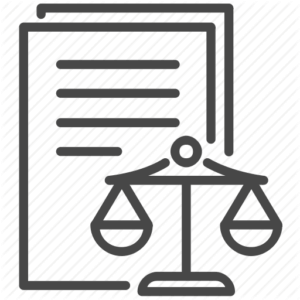Urge Congress to Repair the Clean Water Act

By Kevin Colburn
You might want to tighten those nose clips and buy some earplugs: earlier this year the Supreme Court ruled on a long running legal dispute about which streams and wetlands the Clean Water Act actually protects from pollution – and it’s not good. Their decision, which ignored even the most basic science, stripped protections for an estimated 50% of streams and 70% of wetlands that had been protected since the 1970s.
Congress is considering a bill, the Clean Water Act of 2023, that would reverse this ruling and solidify a science based definition for which streams and wetlands are protected under the Act, ensuring that the original intent of the law is preserved.
Urge your Congresspeople to support this new legislation by using our easy-action form today!
Without congressional action and this court decision in place, we can assume that after 50 years of improving water quality in our nation’s rivers, lakes, and oceans, we’ll begin to see that trend reverse. In short, we may be experiencing peak clean water. The Clean Water Act of 2023, introduced last week, would repair the harm done by the Sackett v. Environmental Protection Agency Supreme Court case. It would do this by amending the Clean Water Act to clearly cover the water bodies it was intended to, and that it must, to reach the congressionally mandated goal of making our rivers safe, fishable, and swimmable. We are all in. Let’s get it passed.
On the day the bill was introduced, the Senate Committee on the Environment and Public Works held a powerful hearing to discuss the risks to the American public created by the Sackett decision. American Whitewater authored written testimony for the hearing outlining some of those risks, focusing on the inequitably distributed risks to the health of a broad range of recreationists, as well as the recreation economy, and rivers themselves.
We shared that river runners head to rivers following rains and snowmelt, at the very same times that small streams, dry riverbeds, and wetlands flush their contents downstream. We stood up for the role of science in determining what is discharged into our nation’s rivers. Most importantly we implored Congress to take action to restore the Clean Water Act protections that we’ve all enjoyed for the past five decades, and with our action form, you can easily make your voice heard for clean water too!
Passing the Clean Water Act of 2023 is the action that needs to be taken. The short and sweet bill fixes the ambiguity in the original Clean Water Act that allowed the Supreme Court to remove protections for a majority of waters in the US based on semantics. The new Act would clearly define which “protected water resources” are covered in a way that is simple and scientifically solid. It is an essential piece of legislation to protect the water quality we’ve enjoyed for decades, and you can help get it passed. While we know passing the legislation this Congress will be challenging, a robust show of public support now will demonstrate to our Congressional champions that constituents care about clean water and keep it at the top of the priority list. We’re hopeful that whitewater recreationists will be a leading voice for clean water, so take a few moments to be a part of our community that speaks up for clean water right now!
This post originally appeared at americanwhitewater.org.


